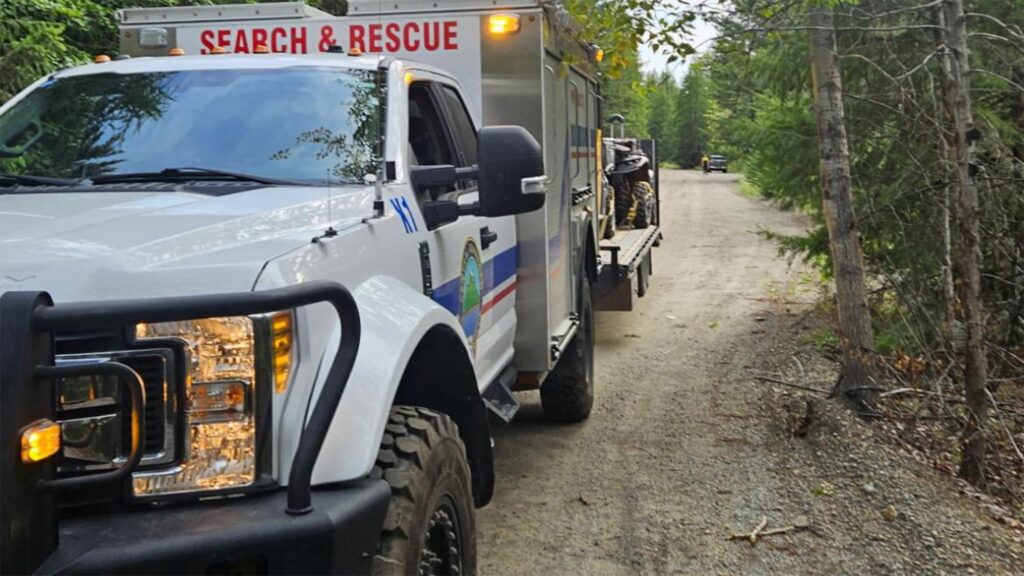A search and rescue team in British Columbia deployed drones, mounted police officers, and volunteers. They found a backcountry crooner.
(Photo: COSAR/Facebook)
Published August 4, 2025 11:30AM
When hikers reported hearing screaming in the woods near a popular climbing area in southern British Columbia, a local search and rescue team scrambled to respond.
It was the evening of Thursday, July 31, and the Central Okanagan Search and Rescue (COSAR) team was conducting a weekly training exercise when they received the distress call. According to a report on COSAR’s Facebook page, hikers told them that the yelling was coming from a wooded area near the Boulderfields, a recreation area south of the town of Kelowna.
The volunteer rescuer organization was able to respond in full force. As search drones took to the skies, a large team of rescuers, along with two Royal Canadian Mounted Police officers, began combing the woods to pinpoint the source of the screaming.
“Early responders even heard faint yelling—but couldn’t make out what was being said,” COSAR wrote. While half of the rescuers scoured the woods on foot, the rest drove nearby forest roads.
Then they found their supposed victim. Was it the survivor of a climbing accident? No. A moose attack victim? Nope. A selfie-taker who had fallen into a raging river? Nada. The terrifying screaming was actually coming from a solo camper who was, “singing his heart out to the trees, blissfully unaware that the acoustics of the Boulderfields had turned his tent-side concert into an accidental distress signal.”
“He wasn’t in trouble,” COSAR Search Manager Duane Tresnich said in the report. “Unless you count his singing.”
While the incident represented an unfortunate false alarm, COSAR said the hikers who called in the distress call acted appropriately. “That area’s full of tricky terrain and bike trails,” COSAR wrote, “so better safe than sorry.”
Screaming for help is often the best course of action for anyone experiencing distress in the backcountry, and multiple rescue operations suggest calling for help when other options fail. In mid-July, a critically injured solo climber in Washington was saved after nearby hikers heard him screaming across a valley.
But hikers and climbers should also be mindful that screaming or even singing in the backcountry can be misconstrued as a cry for help. So, the next time you want to do your best David Lee Roth impression on a hiking trail, perhaps keep the volume a few notches below your maximum.
“Remember, our services are always free,” COSAR added. “And the money you save could be spent on singing lessons.”


